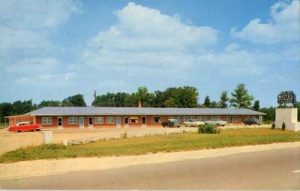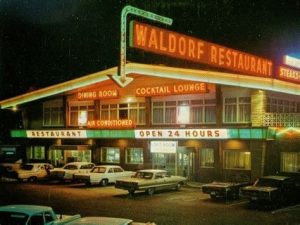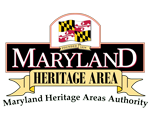Arthur Farrar
Hollywood stars, musicians and athletes came to his business for safe lodging and a place to eat during Jim Crow segregation. He was part of the civil rights effort in Southern Maryland.

Arthur Farrar was a local, African American, self-made businessman. He worked to protect the rights of African American to have safe lodging when they traveled in Maryland. Arthur moved from Washington, D.C. to Waldorf in 1939 and founded the Blue Bird Inn on Rt 925. The inn served local working-class African Americans. Later Farrar opened the Blue Jay Motel on the site in 1953. Lodging is an important part of any journey and Jim Crow era segregation made lodging exponentially harder for Black Americans looking for a place to stay. The Blue Jay was listed in The Green Book from 1956-1964. The Green Book was a guide for African Americans traveling through the segregated South. Southern Maryland was not a popular tourist destination until shortly after World War II when Charles County legalized slot machines and became known as “Maryland’s Little Vegas”. The Blue Jay Motel and the Blue Star Motel provided safe places to stay for those traveling through Southern Maryland.
Before he built the Blue Jay Motel, Arthur built a baseball stadium in the 1940’s. He had a team called the B.B.’s (or Big Boys, which was also the name of his gas station) all where in north Waldorf. In 1952, the State Roads Commission purchased the right-of-way of the stadium from Arthur to build a new alignment for US 301 (Crain Highway). Arthur used the money and constructed the Blue Jay Motel.
THE BLUE JAY MOTEL
The Blue Jay Motel was located on US Highway 301 in Waldorf, MD and was listed in the Green Book from 1956 through 1964. Many entertainers and athletes stayed at the Blue Jay such as James Brown and his band, Patty LaBelle, Sam Cooke, Althea Gibson and former offensive lineman Jim Parker of the Baltimore Colts. They would stay there, when they were not welcome to book a hotel room in Washington, D.C. even if they are being paid to entertain or play sports there.
THE BLUE BIRD INN
The Blue Bird Inn, was listed in the Green Book in the 1955 edition, was a restaurant that had a few spare rooms for black travelers. Some of their guests include Noble Sissel, an American Jazz composer, and Althea Gibson, American tennis player and professional golfer.
THE BLUE STAR MOTEL

The Blue Star Motel was also located on US Highway 301 and was listed in the Green Book from 1957 until 1964. It provided lodging for black travelers journeying from Virginia. The Motel was located six miles north of the Potomac River Bridge, in Faulkner, a predominantly African American community in the southern part of Charles County.
Did You Know:
According to Preservation Maryland, “The Green Book was a guide created by and for African Americans in the 1930s through 1960s to safely find everyday amenities like restaurants and hotels during the Jim Crow era, a period of intense institutionalized racism across America. Over 100 sites were listed in the Green Book in Maryland including The Blue Star Motel and The Blue Jay Motel in Southern Maryland.”
Additional Resources:
Charles County Historic Preservation Program Highlights (boarddocs.com)
Charles commissioners briefed on historical preservation program | Local | somdnews.com
